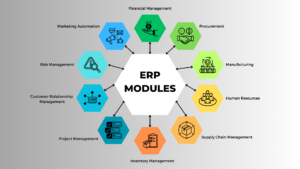
In today’s fast-paced business environment, delivering exceptional customer service is paramount. Companies striving to provide top-notch service turn to client service management software to streamline operations and enhance customer satisfaction. This blog explores the numerous benefits of client service management software, highlighting why it has become indispensable for businesses of all sizes.
What is Client Service Management Software?
Client service management software is a powerful tool designed to help businesses manage customer interactions and improve service delivery. It integrates various functions such as customer support, communication tracking, issue resolution, and performance analysis into a single, cohesive platform.
Key Benefits of Client Service Management Software
1. Enhanced Customer Support
One of the primary advantages of client service management software is its ability to significantly enhance customer support. By consolidating customer information and communication history in one place, service agents can access critical data quickly and provide personalized support. This leads to faster issue resolution and increased customer satisfaction.
2. Improved Efficiency and Productivity
Automation is at the heart of client service management software. Routine tasks such as ticket assignment, follow-up reminders, and response tracking are automated, allowing service agents to focus on more complex issues. This boost in efficiency translates to higher productivity and a better overall customer experience.
3. Centralized Data Management
Client service management software centralizes all customer-related data, making it easily accessible and manageable. This centralization ensures that service agents have a complete view of customer interactions, enabling them to provide consistent and informed support. It also aids in better decision-making and strategy formulation.
4. Enhanced Communication
Effective communication is crucial for excellent customer service. Client service management software offers multiple communication channels, including email, chat, phone, and social media integration. This omnichannel approach ensures that customers can reach out through their preferred method, and service agents can respond promptly.
5. Performance Monitoring and Reporting
Understanding service performance is essential for continuous improvement. Client service management software provides robust analytics and reporting tools that track key performance indicators (KPIs) such as response times, resolution rates, and customer satisfaction scores. These insights help businesses identify areas for improvement and implement effective strategies.
6. Scalability
As businesses grow, so do their customer service needs. Client service management software is scalable, meaning it can adapt to increased volumes of customer interactions without compromising performance. This scalability ensures that businesses can continue to deliver excellent service as they expand.
Features of Top Client Service Management Software
When selecting client service management software, look for the following features to ensure you get the best solution for your business:
- Automated Ticketing System: Streamlines issue tracking and resolution.
- Customer Relationship Management (CRM) Integration: Enhances data accessibility and management.
- Multichannel Support: Facilitates communication through various channels.
- Knowledge Base: Provides a self-service option for customers and aids service agents.
- Customizable Dashboards: Offers real-time insights and performance tracking.
- Mobile Accessibility: Ensures service agents can assist customers on-the-go.
Choosing the Right Client Service Management Software
Selecting the
right client service management software involves evaluating your business needs and comparing different solutions available in the market. Here are some tips to guide you through the selection process:
- Assess Your Needs:
- Identify the specific challenges your customer service team faces.
- Determine which features are essential for your business operations, such as ticketing, CRM integration, or multichannel support.
- Scalability:
- Ensure the software can grow with your business.
- Consider the potential increase in customer interactions and choose a solution that can handle higher volumes without performance issues.
- User-Friendliness:
- Opt for software with an intuitive interface that your team can quickly learn and use.
- Check for customizable workflows that can be tailored to your service processes.
- Integration Capabilities:
- Look for software that seamlessly integrates with your existing tools, such as CRM systems, email platforms, and social media channels.
- Integration ensures a unified approach to managing customer interactions.
- Customer Support and Training:
- Choose a provider that offers robust customer support and training resources.
- Adequate support ensures your team can effectively utilize the software and resolve any issues promptly.
- Cost and ROI:
- Evaluate the pricing structure and ensure it fits within your budget.
- Consider the potential return on investment (ROI) through improved efficiency and customer satisfaction.
Conclusion
Investing in client service management software is a strategic move that can transform your customer service operations. By enhancing support, improving efficiency, and providing valuable insights, this software empowers businesses to deliver exceptional service and build lasting customer relationships.
In a competitive market, outstanding customer service is a key differentiator. Embrace the power of client service management software to elevate your customer experience and drive business success.











